Rrrrip. Rrrrip. Rrrrip.
The distinct crackling of duct tape being peeled from its roll permeates the air on a hot September afternoon in Jasper.
A white truck drives by. Then another. In the west end of the Jasper townsite, service vehicles have become ubiquitous. All of the neighbourhood’s sightlines are different in the wake of the July 24 wildfire that razed entire city blocks in this part of the community, and from the bottom of the hill at 1008 Lodgepole Street, it’s possible to watch the two trucks go up and over the rise, past the remains of a dozen or so homes, and turn the corner into Cabin Creek.
The roll of tape gets passed around. Four men—each clad in white, spacesuit-like polyethylene coveralls—are organizing a series of wash bins. Hoses and tables and buckets and crates are unloaded from the back of an enclosed trailer with the words Team Rubicon emblazoned on its sides.
“Are you the homeowner?” a barrel-chested man with a hint of an east coast accent asks my friend. “I’m Doug. I’m sorry for your loss.”
Team Rubicon is a global humanitarian organization, made up of volunteers, led largely by retired military veterans. They deploy to disaster areas all over the world—last year they were in hurricane-ravaged Florida, earthquake-shook Morocco and typhoon-damaged Guam—to help communities and their residents in need. Doug, we learn, served with the Princess Patricia’s Canadian Light Infantry, based in Edmonton. Luke is from Taskforce Kiwi. The 20-something-year-old used his vacation time to travel across the globe so he can dig through the ashes of Jasper’s wildfire-ravaged homes, to help traumatized residents obtain some sense of closure.
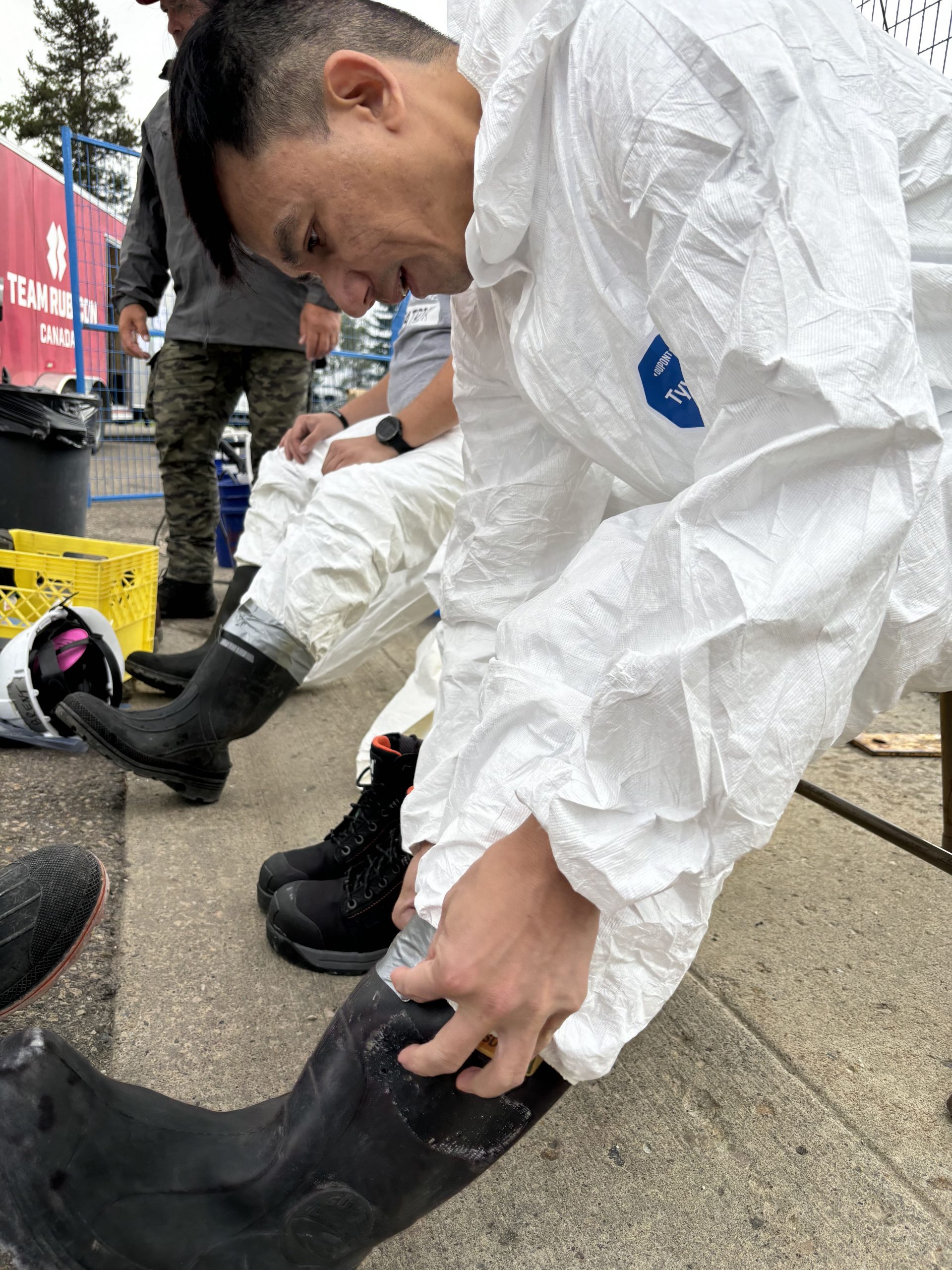
“This is a beautiful part of the world,” he says, looking up briefly while making tape wraps around his boot tops.
The PPE has to be sealed tight, to mitigate exposure to hazardous debris—of which there is no shortage in Jasper these days.
“Hold on there,” Doug says as the Kiwi looks around for his tools—a rake, a shovel and a sieve. In black sharpie, in big, block letters, Doug scrawls “Luke” on the back of the Kiwi’s spacesuit, along with the time: 14:20.
“We have to limit the time spent on-site,” Doug explains. “Four hours max.”
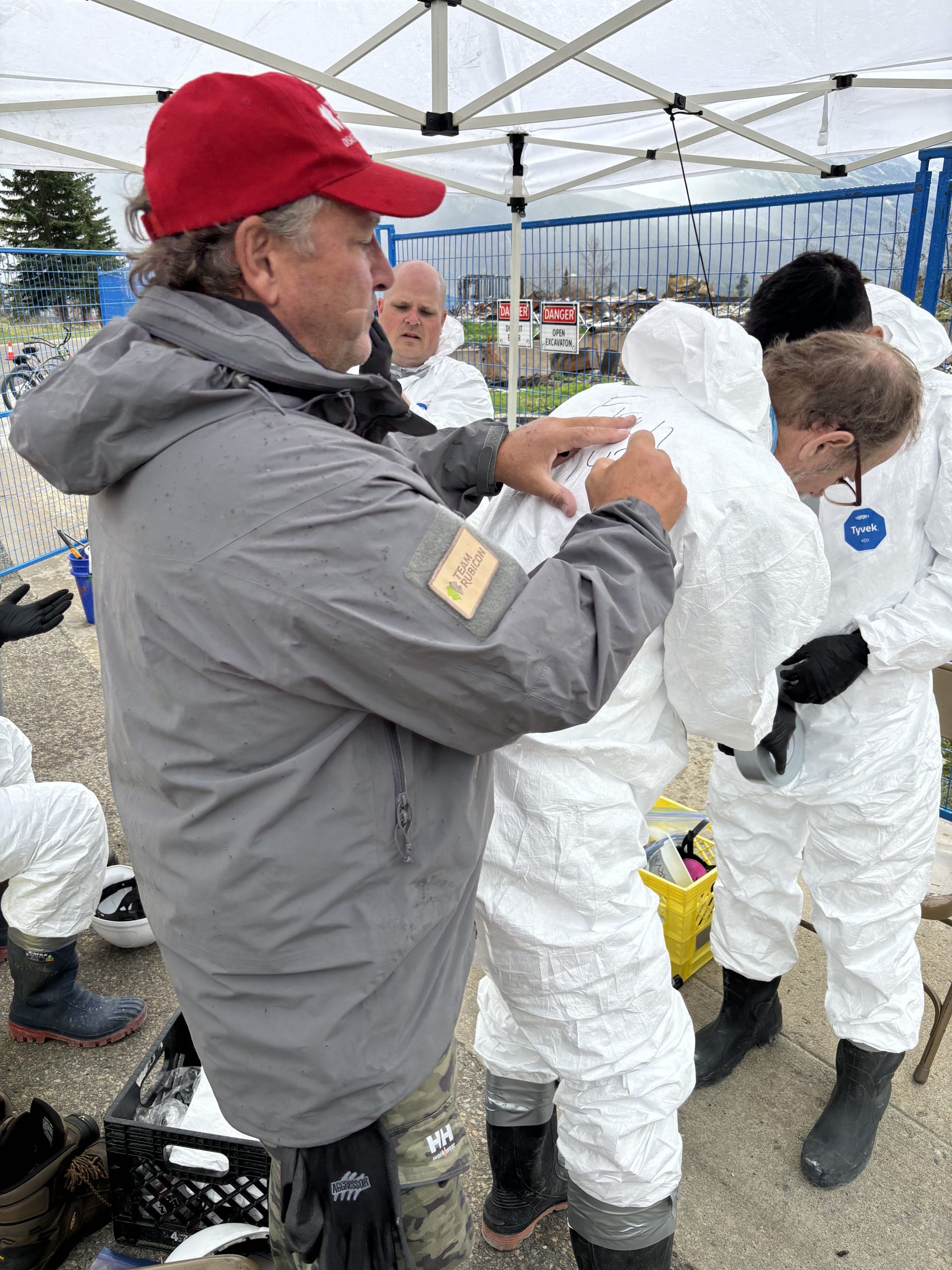
Potential on-site hazards notwithstanding, wearing a sauna suit while digging in an ash pit in the hot sun for hours is extremely uncomfortable. Moreover, time limits are imposed to protect sifters’ mental health. Team Rubicon’s volunteers would get completely burned out if such boundaries weren’t drawn, Doug explains.
“We could spend a week looking at some of these sites,” he says. “At some point, you have to call it done.”
Luke is almost ready to sift. As are Francis, Patrick and Marvin. Hoods, hardhats and respirators are donned. Almost immediately, their clear safety glasses begin to fog.
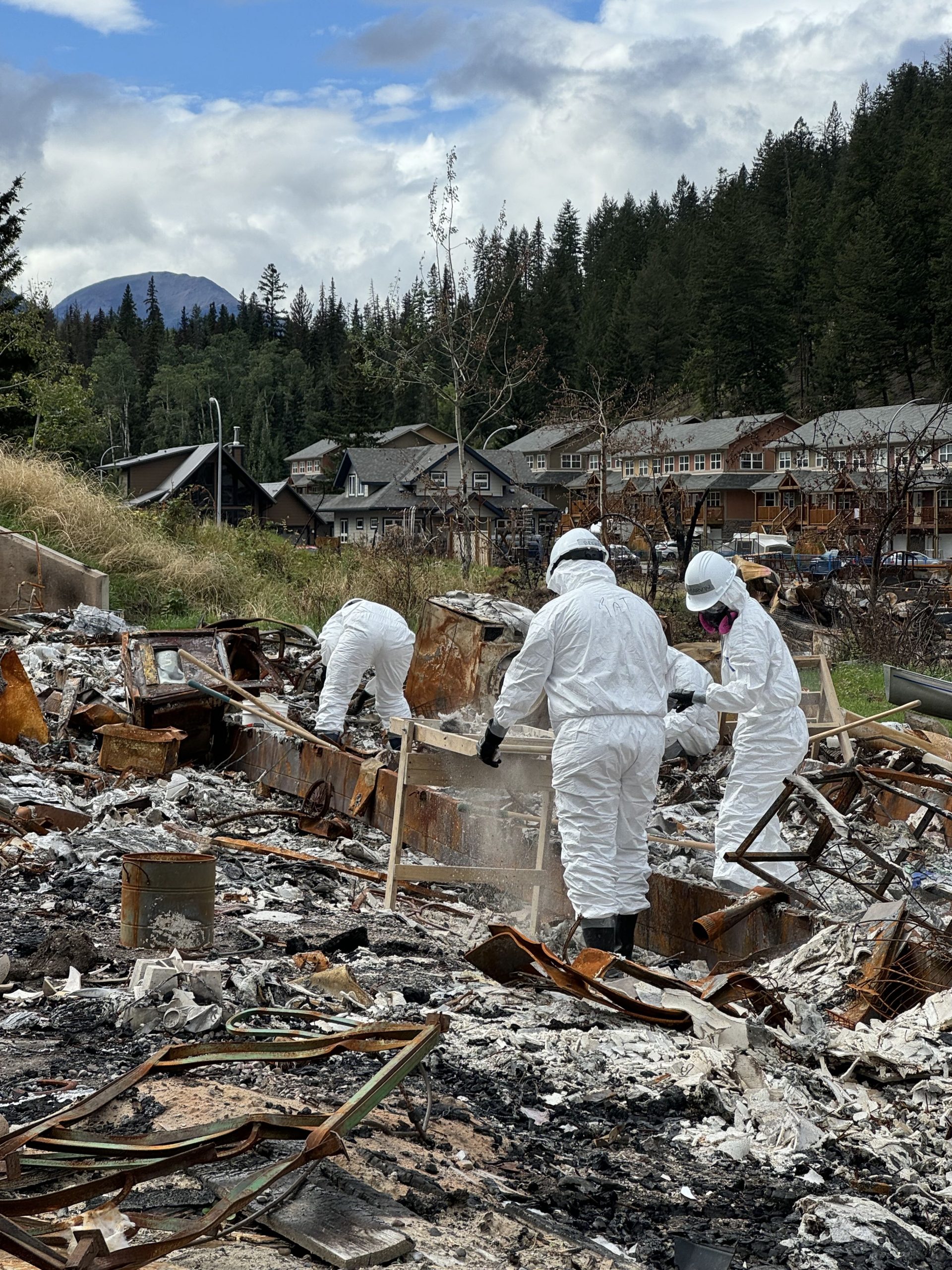
“You want to be looking in this area here,” says Doug, pointing to a rudimentary map drawn on a piece of cardboard with three priority areas identified by the homeowner.
“Dig deep, but dig carefully. Everything in here will be very brittle.”
Over on the other side of a blue, welded wire fence which cordons off the site, the owner of what used to be her family’s mobile home is likewise feeling brittle.
Wendy Hall—30-year resident of Jasper, former bike shop owner, local municipal councillor and temporary resident of Hinton—peers at the team combing carefully through the wreckage of her home. She knows her kids’ school day photos which hung on the wall are now but a memory. She knows the earrings she was gifted by her friend from Kelly Lake Cree Nation are gone. But she’s holding out hope that Team Rubicon’s volunteers will find something—anything—that will remind her of the life she and her husband built here when they scraped together the funds to purchase their mobile home two decades ago.
“Today’s hard,” she says, not for the first time.
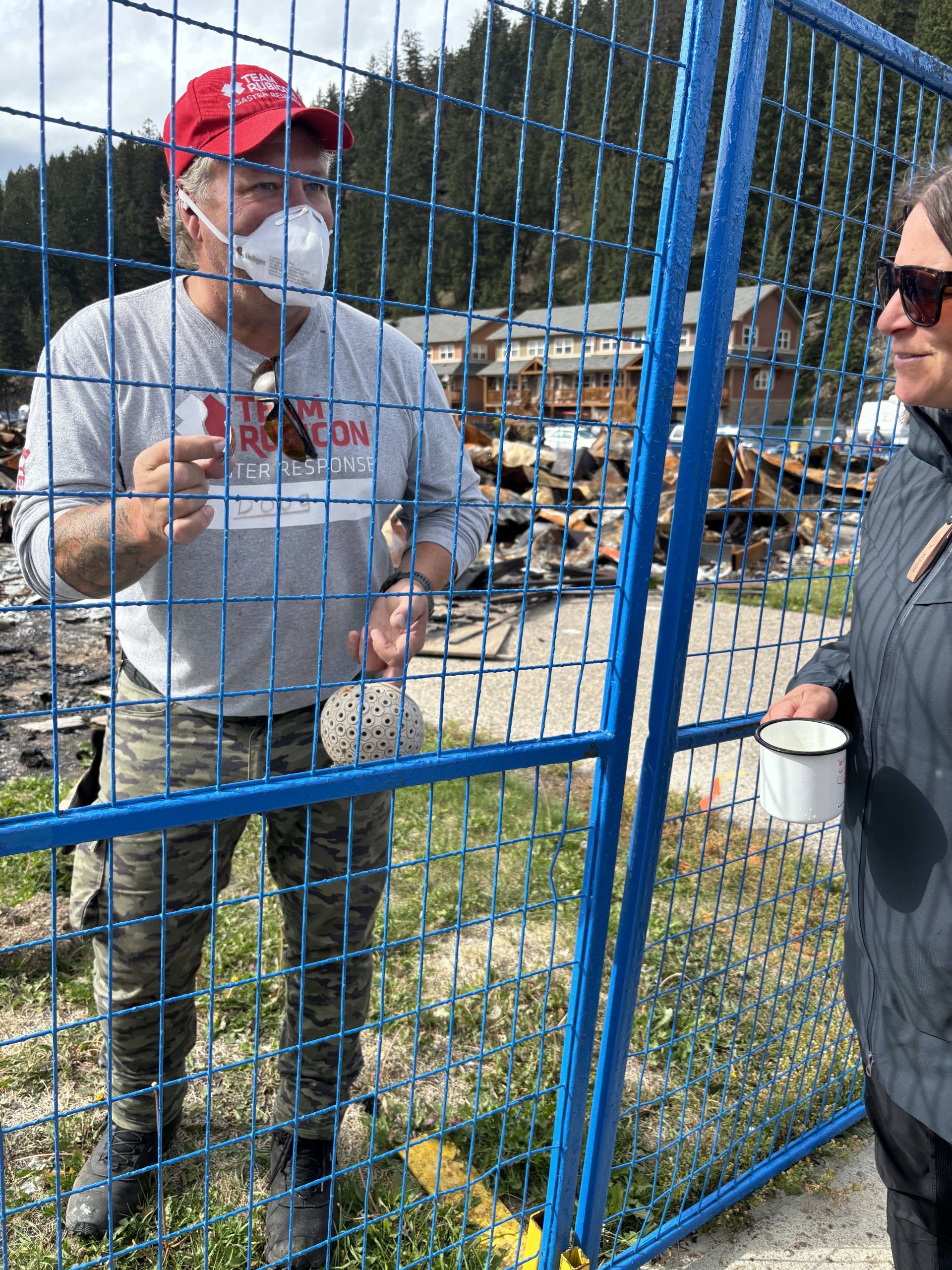
Suddenly, Luke has unearthed something from the rubble. He brings over a bucket of potential treasures. Mugs—most of them broken—make up the bulk of the find. One of them is in salvageable condition. On it is the slogan Ski forever, work whenever. Everyone—including Doug and Luke—shares a laugh.
“Chris will be happy that one survived,” Wendy says.
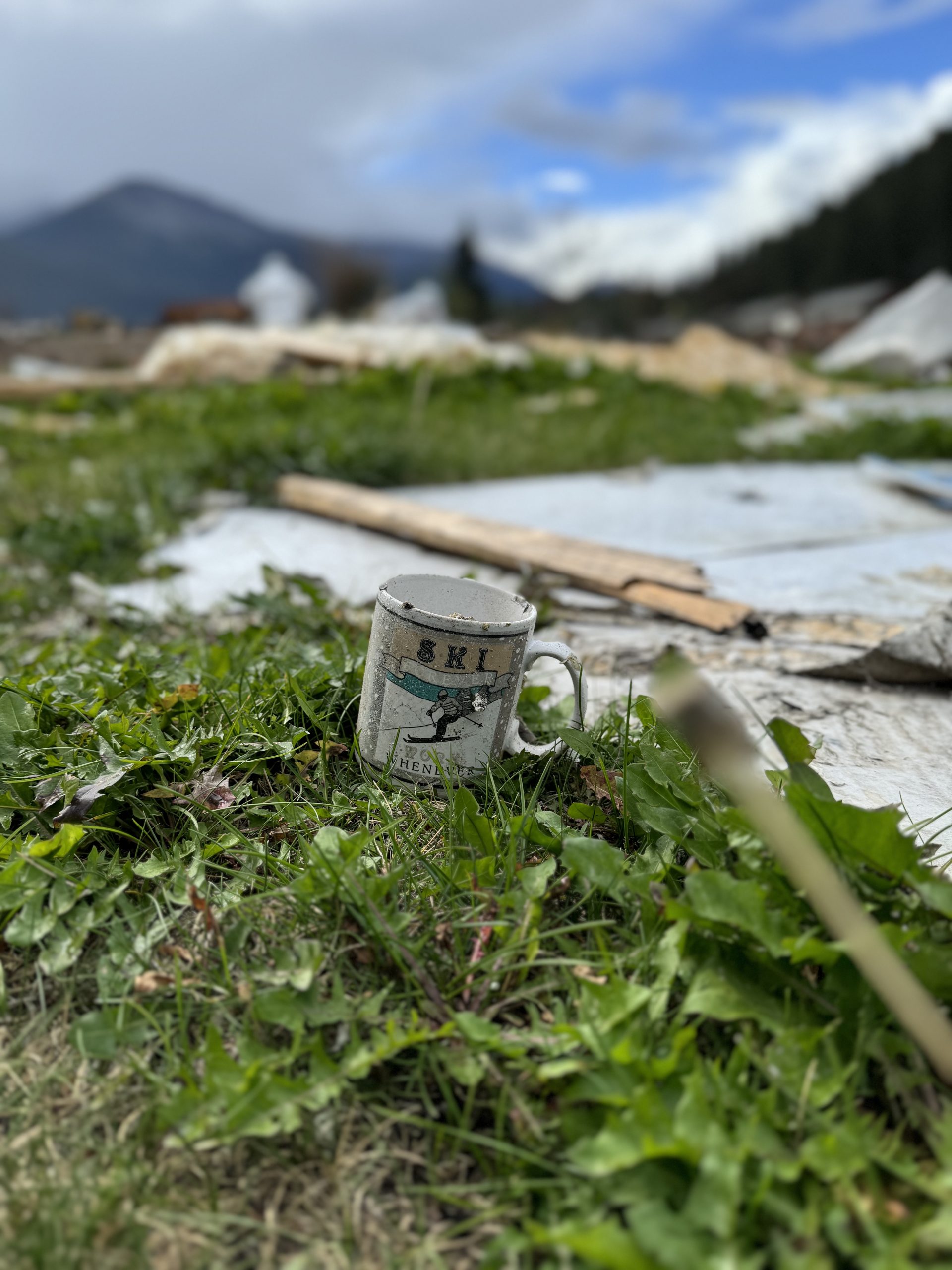
Earlier that day, a scheduling mixup meant that The Rubicon strike team assigned to help Wendy with her sift was called to a different site. To rectify the issue, Wendy biked to the Jasper Legion, where Team Rubicon had their base set up. Among the throng of volunteers running to and fro was army vet Jim Hau, from Edmonton.
Hau, who has fond memories of camping at Wapiti Campground as a kid, was among the first of the Team Rubicon crews who deployed to Jasper following the wildfire. Plugging into the Jasper Recovery Coordination Centre’s operations, they arrived a few days before officials facilitated the re-entry of residents, on August 16. For Hau, it’s been an intense, but incredible five and a half weeks. What drew him to the volunteer work was the culture of the organization. After tours in Afghanistan (with Jasper’s Keith Henderson) and Bosnia, doing disaster recovery work is a continuation of service, he said.
“My philosophy is to always put more jellybeans in the jar than you pick out,” Hau likes to say.
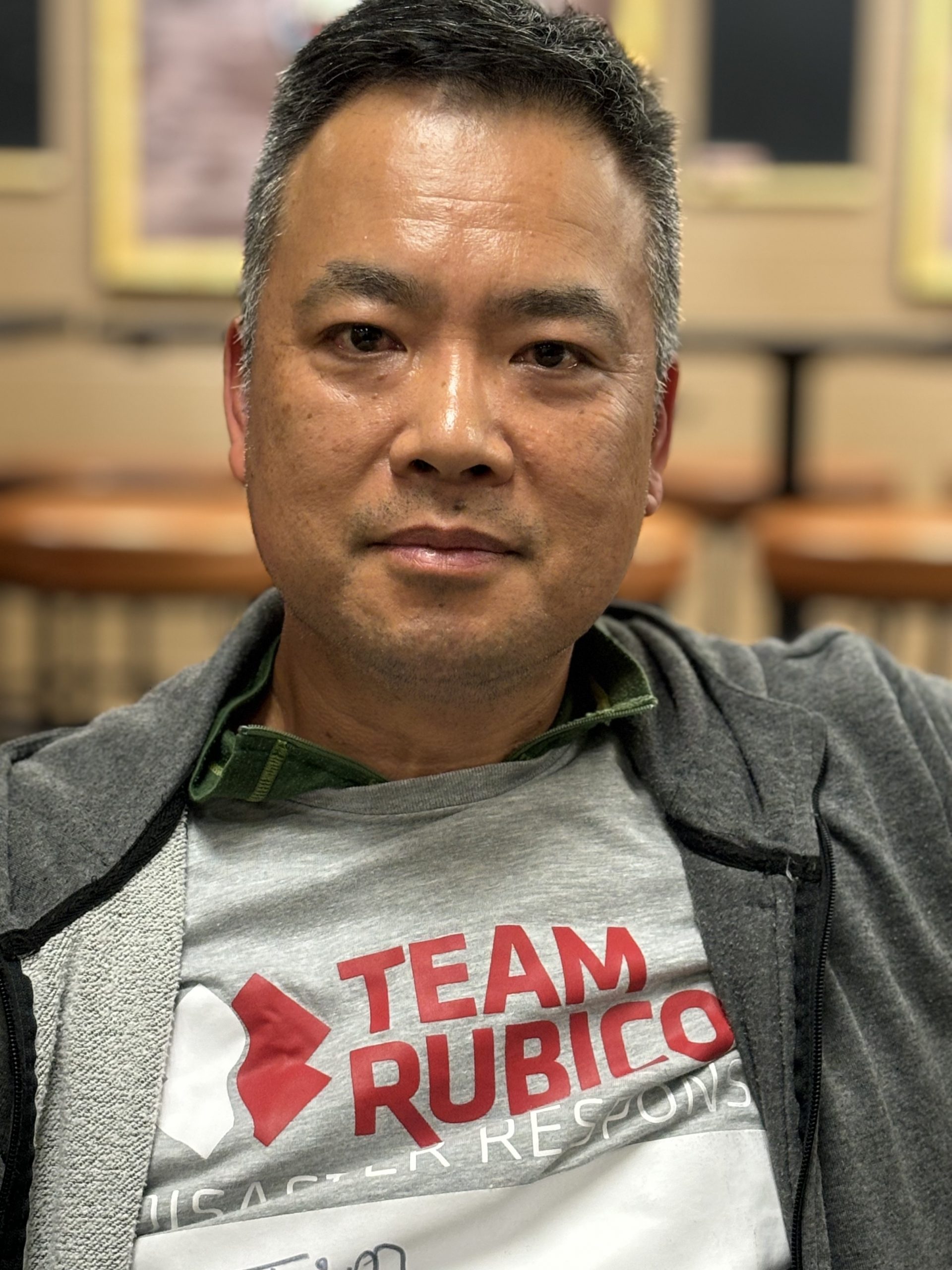
During their time in Jasper—wherein they slept at the Jasper Baptist Church, took meals at the Jasper Legion and deployed to different rubble piles around town—Team Rubicon have performed more than 290 sifts in Jasper. Their volunteers have found wedding rings, antique park warden badges, children’s drawings and jewelry boxes. They’ve discovered stuffed animals, urns and family tools passed down for generations.
But more than digging up precious mementos, Rubicon volunteers have shared countless emotional journeys with grieving Jasperites.
“It’s that sense of bringing hope,” Hau says of what drives him to stay on. “It’s that sparkle in someone’s eye when we find something.”
Four hours is almost up at 1008 Lodgepole Street. Doug is asking Wendy if she feels satisfied the sifting process has taken place—that there’s nothing left to salvage. Just as she’s about to answer, another muffled cry of success emanates from someone’s spacesuit. Doug expedites the find and gently lifts the treasure out of the blue bucket, holding it up for Wendy’s examination.
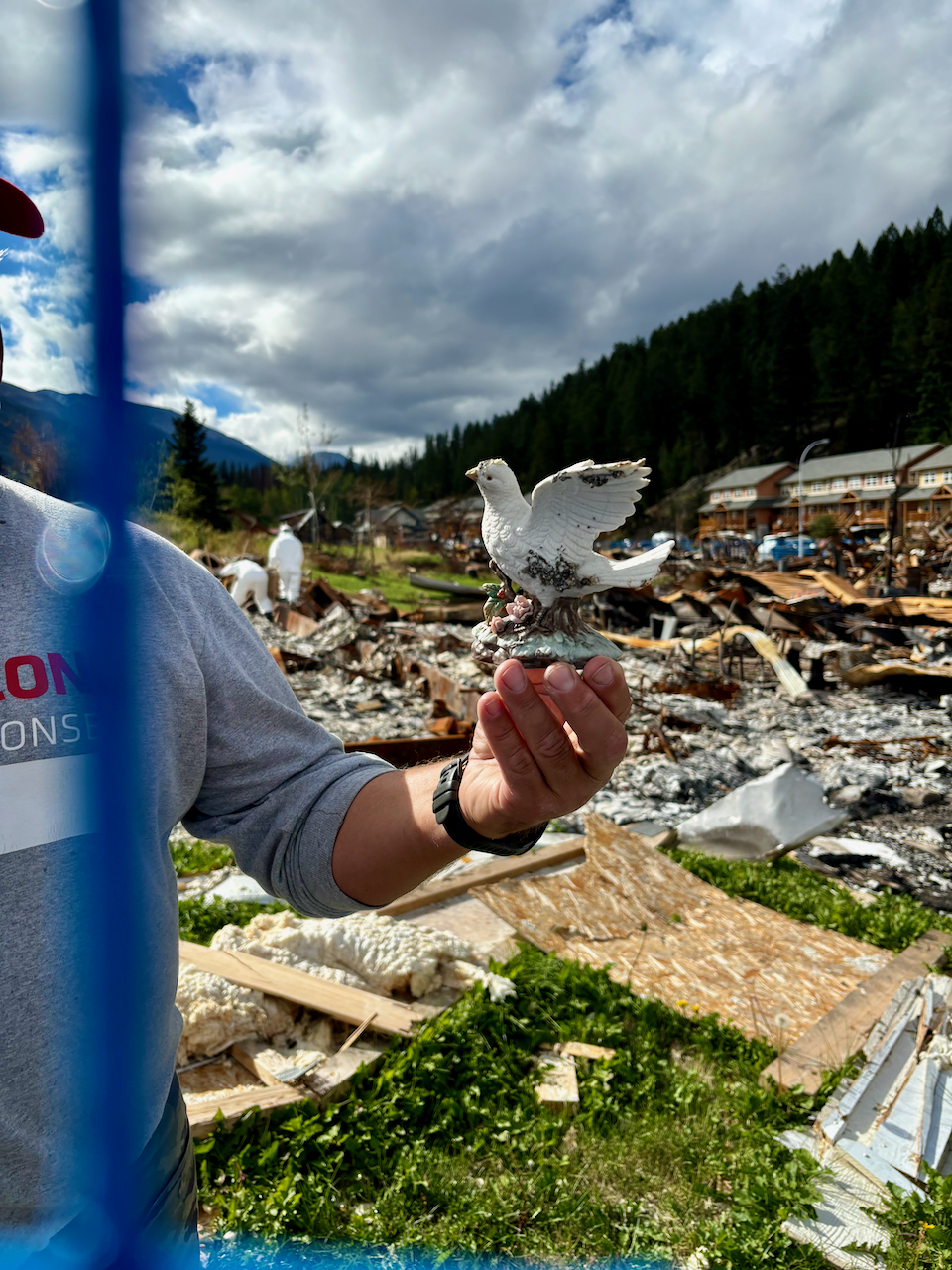
It’s a porcelain dove, cracked, and missing its partner, but compared to the rust and char-coloured melted remains of the kitchen and living room surrounding it, the bird is practically pristine.
The dove, a symbol of hope and renewal, of harmony and the promise of a brighter tomorrow, has been unearthed from the ashen remains of councillor Hall’s wildfire damaged home.
“That was from my grandmother,” Wendy says. “My dad’s not going to believe it.”


